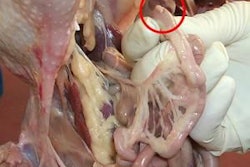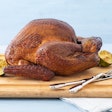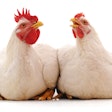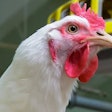
The recent International Egg Commission (IEC) Conference provided a platform for producer organizations and production specialists to acquaint the world’s egg industry with current trends in marketing, welfare and housing.
Branding of eggs
Dr. Jan-Benedict Steenkamp shared his views on branding with attendees emphasizing that “strong brands don’t just happen, they are created.” He maintains that branding eggs represents a practical alternative to store-designations since consumers invariably seek out brand names, simplifying the purchase process.
Since most consumers make a purchase decision within 20 seconds, it is important for brands to be featured on packs. In addition, product attributes including nutritional content should be clearly visible.
Of special importance to the U.S. industry is the distinction between generic and brand promotion. Dr. Steenkamp recognizes the role generic promotion may have in dispelling misconceptions among consumers. A specific example is the excellent work by the American Egg Board in removing the stigma of cholesterol from eggs. Similar efforts have been made by United Egg Producers regarding welfare, despite the negative campaign against confined livestock mounted by HSUS and kindred organizations.
Brand promotions can be extremely effective, providing that the attributes of the product can be appreciated by consumers. Competitive advantages accrue to successful brands despite the costs associated with advertising. Dr. Steenkamp maintains that brand promotion is most effective in concentrated markets such as the major metropolitan areas of the U.S.
With the supermarket industry representing an oligopoly in the U.S. and the EU, and the inclinations of multinationals towards store brands, producers must be flexible and be prepared to sell both generic and premium products to the major chains. At the end of the day the reality is that supermarkets own their shelves. They are, however, prepared to sell both specialty and store brands in response to consumer demand since customers loyal to a specific brand may fill their weekly baskets at a competing store with broader offerings. We are all aware of the standard question “did you find everything OK?” at the checkout counter.
Enriched colony systems
The organizers of the 2009 IEC Conference arranged a panel of EU experts to review progress in adoption of enriched colony cages. In 2008, 7% of the 278 million confined hens in the EU were housed in colony cages. Germany leads the nations of the EU in adoption of the system referred to as Kleingruppenhaltung which can be effectively translated as “housing in small groups.” In contrast, Austria has banned colony cages, effective 2020. Sweden has allowed colony systems following the phase-out of conventional cages at the end of 2002. Belgium will ban conventional cages beginning in 2012 but will allow enriched colony cages through 2024.
Studies conducted on colony cages in the Netherlands showed that over 95% of eggs were laid in nest boxes and that 90% of the hens used perches at night. Evaluations of the behavior of hens in cages are still in progress, with attempts to correlate performance with activity of flocks in a small group. It is estimated that egg production costs 10% more in colony cages compared to conventional cages. Currently in the EU there is no premium for eggs derived from colony systems as compared to free range and non-confined flocks.
A note of unfounded optimism was represented by statements expressed at the conference that enriched colony cages will comply with emerging U.S. animal welfare guidelines including California Proposition 2 and the recently enacted law in Michigan. A reading of both items would appear to exclude colony cages.
The HSUS and others regard a cage of any form as “confinement” and non-compliant with their position that hens must be able to “spread their wings without touching either side of an enclosure or another bird.” This provision would effectively eliminate colony cages and may extend to any non-confined barn system depending on interpretation. Advancing colony cages as a means of appeasing the HSUS and PETA will be futile since hen welfare is not the real issue. Complete abolition of intensive livestock production is the ultimate goal of these extremists.



















